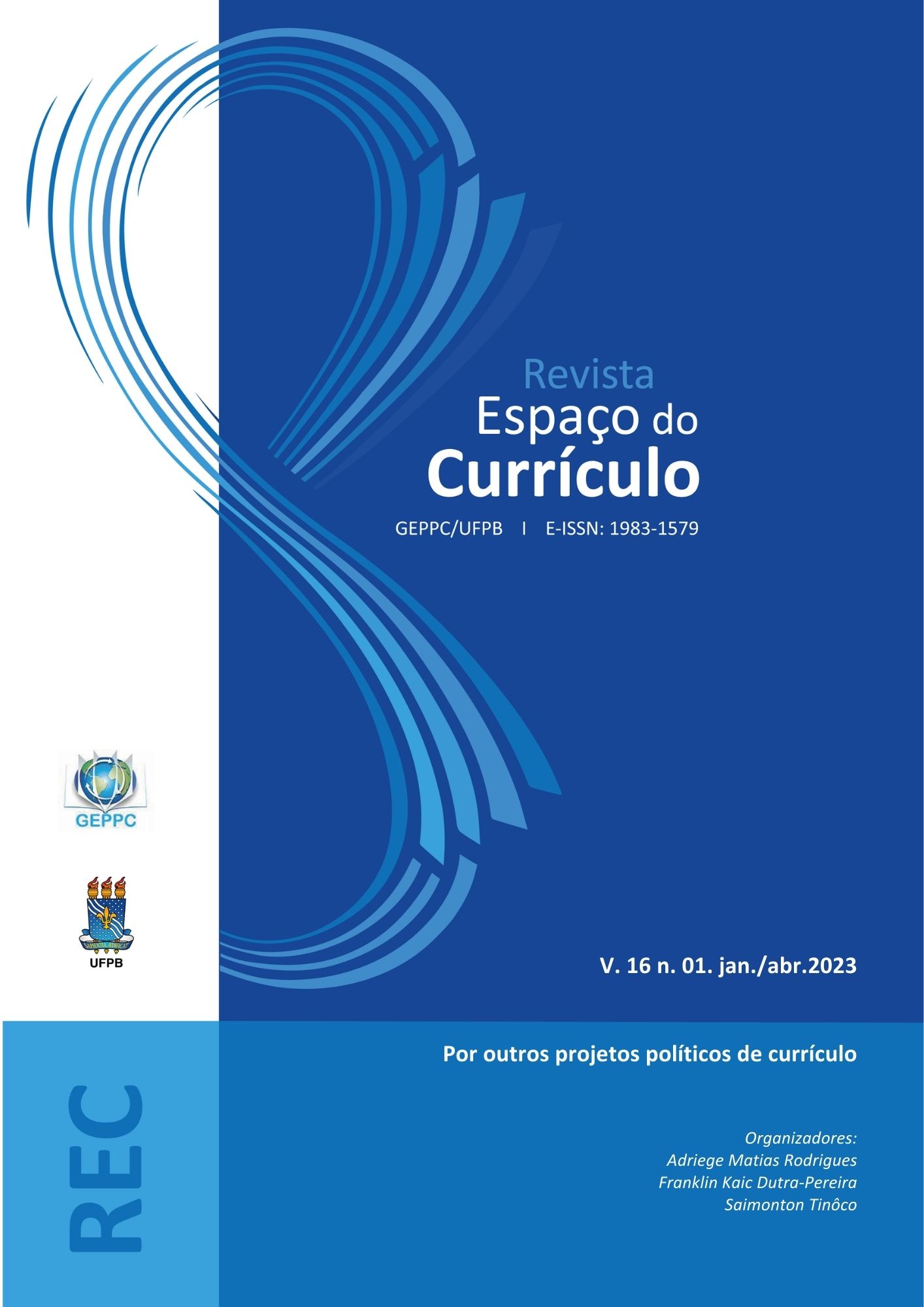CURRICULUM POLICIES FOR TEACHER EDUCATION
by subjects through knowledge
DOI:
https://doi.org/10.15687/rec.v16i1.66177Keywords:
Curriculum Policies, Teacher Education, Knowledge, National Curriculum for Teacher EducationAbstract
This article focuses on a reflection on how the name knowledge, even under intense and distinct criticism in the curriculum field, tends to be reaffirmed as a property capable of constituting full subjectivities, a teacher subject endowed with a certain capacity to do things in a promised school/world. It problematizes the knowledge defended in politics as that which is unknown to be appropriated by those who were not before, so that they become, become the subject desired by an expectation of structure/control. In order to address a possible scenario of statements about relations between knowledge in teacher education, it makes use of contributions from Ernesto Laclau's discourse theory, and Jacques Derrida's deconstruction thinking. With these authors, I take as my main contribution the idea of subjectivation to think about the projection of political subjectivities in which hegemonies in the curriculum field are constituted in their relations with the field of teacher education. He points out that such a perspective tends to neglect the contextual productions that take place where those teachers/students we do not know, who do what we do not know at school, happen.
Downloads
Metrics
References
BIESTA, Gert. Para além da aprendizagem. Educação democrática para um futuro humano. Belo Horizonte: Autêntica, 2013.
BIESTA, Gert. Outline of a Theory of Teaching: What Teaching Is, What It Is For, How It Works, and Why It Requires Artistry. In: Praetorius, Anna-Katharina, Charalambous, Charalambos Y. (eds). Theorizing Teaching. Cham: Springer, 2023.
BORGES, Verônica; LOPES, Alice Casimiro. Formação docente, um projeto impossível. Caderno de Pesquisa. Scielo. São Paulo, v. 45, n. 157, p. 486-507, 2015.
BRASIL. Ministério da Educação. Base Nacional Comum Curricular. Educação é a Base. Brasília: MEC, 2018.
BRASIL. Parecer CNE/CP Nº 22/2019. Diretrizes Curriculares Nacionais para a Formação Inicial de Professores para a Educação Básica e Base Nacional Comum para a Formação Inicial de Professores da Educação Básica (BNCFormação) Ministério da Educação. Conselho Nacional de Educação. Brasília. 2019.
COSTA, Hugo Heleno Camilo; LOPES, Alice Casimiro. A contextualização do conhecimento no ensino médio: tentativas de controle do outro. Educação & Sociedade, v. 1, p. 1-20, 2018.
COSTA, Hugo Heleno Camilo; LOPES, Alice Casimiro. O conhecimento como resposta curricular. Revista Brasileira de Educação, v. 27, p. 1-23, 2022.
CUNHA, Érika Virgílio Rodrigues da; COSTA, Hugo Heleno Camilo. Da expectativa de controle ao currículo como experiência em tradução. Revista Práxis Educacional, Bahia, v 15, n. 33, p. 141-163, 2021.
DERRIDA, Jacques. Limited Inc. Trad. Constança Marcondes Cesar. Campinas: Papirus, 1991.
DERRIDA, Jacques. Espectros de Marx: o Estado da dívida, o trabalho do luto e a nova Internacional. Tradução de Anamaria Skinner. Rio de Janeiro: Relume Dumará, 1994.
DERRIDA, Jacques. Posições. Belo Horizonte: Autêntica, 2001.
DERRIDA, Jacques. A farmácia de Platão. São Paulo: Iluminuras, 2005.
DERRIDA, Jacques. Dar la muerte. Barcelona: Paidós, 2006.
DERRIDA, Jacques. A escritura e a diferença. São Paulo: Perspectiva, 2011.
DIAS, Rosanne Evangelista. BNCC no contexto de disputas: implicações para a docência. Revista Espaço do Currículo, João Pessoa, PB, v. 14, n. 1, 2018.
DIAS, Rosanne Evangelista. Desempenho regulando a docência nas políticas de currículo. Cadernos de Educação, n.65, p. 1-24, 2021.
ELLSWORTH, E. Why doesn't this feel empowering: working through the repressive myths of critical pedagogy. Harvard Educational Review, v. 59, p. 297-324, 1989.
FRANGELLA, Rita de Cássia; DIAS, Rosanne Evangelista. Os sentidos de docência na BNCC: efeitos para o currículo da educação básica e da formação/atuação de professores. Educação Unisinos, Rio de Janeiro, p. 7-15, 2018.
LACLAU, Ernesto. Nuevas reflexiones sobre la revolución de nuestro tiempo. Buenos Aires: Nueva Visión, 1990.
LACLAU, Ernesto. Emancipação e diferença. Rio de Janeiro: EdUERJ, 2011.
LOPES, Alice Casimiro. Por um currículo sem fundamentos. Linhas Críticas, Brasília, DF, v. 21, n. 45, p. 445-466. 2015.
LOPES, Alice Casimiro; MACEDO, Elizabeth. Teorias de Currículo. São Paulo: Editora Côrtez, 2011.
MACEDO, Elizabeth. Base Nacional Comum para Currículos: direitos de aprendizagem e desenvolvimento para quem? Educação e sociedade, v. 36, p. 891-908, 2015.
PINAR, William; REYNOLDS, William; SLATTERY, Patrick; TAUBMAN, Phillip. Understanding Curriculum. New York: Peter Lang, 2008.
SANTOS, Geniana dos; BORGES, Verônica; LOPES, Alice Casimiro. C. Formação de professores e reformas curriculares: entre projeções e normatividade. Linhas Críticas, [S. l.], v. 25, p. e26200, 2019. DOI: 10.26512/lc.v25.2019.26200. Disponível em: https://periodicos.unb.br/index.php/linhascriticas/article/view/26200. Acesso em: 20 nov. 2022.
Downloads
Published
How to Cite
Issue
Section
License
Copyright (c) 2023 Curriculum Space Journal

This work is licensed under a Creative Commons Attribution 4.0 International License.
By submitting an article to Curriculum Space Journal (CSJ) and having it approved, the authors agree to assign, without remuneration, the following rights to Curriculum Space Journal: first publication rights and permission for CSJ to redistribute this article. article and its metadata to the indexing and reference services that its editors deem appropriate.
















